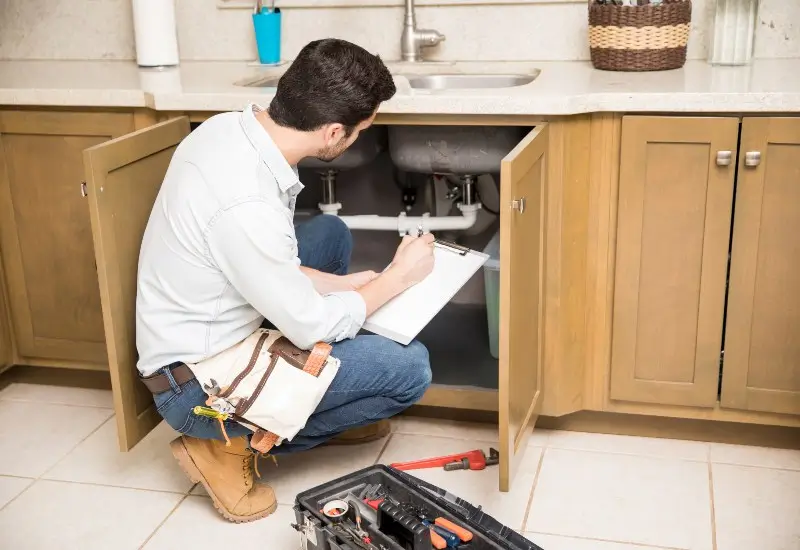
Plumbing is a crucial home system, yet it’s mostly unseen and easy to forget about—until something goes wrong. A plumbing emergency is a homeowner’s worst nightmare, resulting in costly repairs and heaps of stress. That’s where annual plumbing inspections come in. Having your home’s plumbing checked regularly allows you to catch small issues before they become major headaches.
What is a Plumbing Inspection?
A plumbing inspection is a detailed assessment of your home’s water pipes, fixtures, and other plumbing components. This evaluation serves to identify any issues that need immediate attention or may become major problems down the line. From dripping faucets to possible sewer line issues, a plumbing inspection gives you peace of mind and may save you from needing an emergency plumber down the road.
How Often to Schedule a Plumbing Inspection
Experts recommend hiring a plumber to perform a plumbing inspection once a year or as soon as possible if any of the following circumstances apply:
- You’re buying a house: A pre-purchase plumbing inspection can prevent unwanted surprises and extra expenses after settling into your new home.
- You notice signs of plumbing trouble: Unusual noises, low water pressure, or foul odors from your drains are all signs that something is amiss with the plumbing.
- You have other plumbing work scheduled: If you’re already hiring a plumbing repair service for other issues, this is the perfect time to add an inspection.
- You know of plumbing-related issues in the neighborhood: If your neighbors have reported plumbing problems, your home might be next. Nip it in the bud with a plumbing inspection.
What a Home Plumbing Inspection Entails
So you’ve decided to get a plumbing inspection, but what exactly does that involve? An inspection is more than just a quick glance at your pipes and drains; it’s a thorough assessment that covers several key aspects of your home’s plumbing system. Here’s what to expect from your plumber during an inspection:
- Check the water pressure: High or low pressure can cause plumbing damage or performance issues. A simple test ensures the water pressure falls within the recommended range.
- Identify where the main shutoff valve is located: Knowing the location of your main shutoff valve is crucial in case of a plumbing emergency, like a burst pipe. The technician will show you where it is and how to use it so you can quickly turn off your home’s water supply if needed.
- Check individual water shutoff valves: Smaller shutoff valves are located behind sinks, fixtures, and appliances, allowing you to isolate sections of your plumbing without shutting off the entire system. A good inspection ensures that these valves are functional and leak-free.
- Maintain the water heater: Your water heater is an essential part of your daily routine. During an inspection, your plumber checks for sediment buildup, faulty temperature and pressure relief valves, and any signs of corrosion or leaks. Proper maintenance prolongs the life of your water heater and ensures it operates efficiently.
- Scope the sewer line: A specialized sewer camera provides a detailed view of the inside of your main sewer line. This helps identify blockages, cracks, or tree root intrusions that may not be visible from the surface but could lead to significant plumbing issues later on.
- Inspect fixtures for leaks: Even a small leak can result in high water bills over time. The inspection includes thoroughly checking all faucets, showerheads, and other fixtures to ensure they are in good condition and not dripping.
- Test drains for clogs: Slow-draining sinks and tubs indicate a developing clog. During the inspection, your plumber tests the drains to ensure they allow water to flow freely.
- Examine outdoor hose bibs: While often overlooked, outdoor hose bibs should be checked for leaks, especially before winter arrives, to prevent the freeze-thaw cycle from damaging your pipes.
- Check for rust: Corroded pipes are more likely to leak or burst. An inspection identifies any areas where rust is starting to take hold, allowing for proactive repairs.
Benefits of Home Plumbing Inspections
Understanding the advantages of a plumbing inspection helps you appreciate its value. Here are the key takeaways:
- Detect problems early so they don’t have a chance to escalate into costly emergencies.
- Lower your utility bills by repairing leaks and adjusting the water pressure.
- Enjoy peace of mind, knowing that your plumbing is in good shape.
- Increase home value by making your home more attractive to potential buyers.
- Remain compliant with local codes and standards.
- Extend the life of your plumbing system for a wise, long-term investment.
Choosing a Reputable Plumber
Before scheduling your next home plumbing inspection, it’s crucial to find the right plumber for the job. Here’s what to look for:
- Fully licensed plumbers: Make sure every crew member is fully licensed and skilled in the plumbing trade.
- Customer reviews: Check out what other customers have said about their experience with this plumber.
- Local experience: A local plumbing service understands the specific issues common in your area. Having several years of experience behind them also increases the chance of a job well done.
- Work guarantee: Reputable service providers are committed to customer satisfaction and stand by the quality of their work with valuable warranty coverage.
- Transparent pricing: No one likes hidden fees. Make sure the pricing is clear and upfront.
Contact Puget Sound Plumbing and Heating
If you’re searching for reliable plumbing service in Seattle, Puget Sound Plumbing and Heating is here to help. Our family-owned company has been in business for over 20 years, with a focus on unbeatable work and positive customer experiences. As a 24/7 emergency plumber, we can lend a hand any time of day or night. Even so, it’s best not to wait for a small issue to escalate. Call us at (206) 938-3219 and schedule your annual plumbing inspection today.


